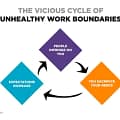A manager’s role is far more than supervisory — and Gallup finds that 70% of a team’s engagement is influenced by managers.
According to the statistics above, a manager’s role encompasses a lot of responsibilities and Leadership is one of them.
A manager has to use some leadership skills to initiate action, guide the team and motivate them, instill confidence, and build morale.
He has to create a positive work culture and stand as a role model to the team.
All this is not easy to do in a day or just a few days.
To emerge as a leader, you need to build some leadership skills and that takes time.
And to get you started initially when you step into Manager’s role for the first time, I have compiled a list of leadership tips that will stand you in good stead in the early days so that you know what to do and how to behave without stressing too much.
So here are 78 amazing leadership tips which will help you sail successfully and confidently in your new role.
Would you like to Make A SMOOTH TRANSITION AND THRIVE CONFIDENTLY in your New Role ?
Get the FREE NEW MANAGERS GUIDE TO THRIVE CONFIDENTLY HERE

78 AMAZING LEADERSHIP TIPS THAT WILL MAKE YOU A CONFIDENT LEADER
1.Be a humanitarian and do not treat your people as numbers of your business or “resources”.
2.Greet every employee by his/her name to add a personal touch.
3.Respect your employees’ time. Don’t intrude when they are working. Never assume that they may not be working!
-
Value your time. Manage it judiciously. If you value your time, people will always respect yours and their time.
5.Express gratitude by saying “Thank you” more often. Appreciate the contributions and participation of your employees.
6.Give credit where it is due. Recognize the achievements of your employees open-heartedly. Take responsibility for failures but share the success.
7.Smile more and Smile often.
8.Use “We” more than “I” .
9.During Crisis remain calm. Provide confidence to your team that you’re around to solve their problems.
10.Treat everyone fairly and equally to control unnecessary politics.
11.Be objective while giving criticism. Make sure you deliver constructive criticism and never do it in public.
12.Accept your mistakes graciously. Saying “sorry, I made a mistake ” shows your strength, not weakness.
13.Listen intentionally and let the other person complete what he/she has to say.
14.Avoid being judgmental.
15.Do not be sarcastic.
16.Pause before responding. Take time to think about your responses carefully.
17 .Be in the present. Understand the “current context”. Avoid talking about your past glories.
-
Keep calm when your emotions get the better of you. Frame your response carefully before delivering it. Learn to manage and regulate your emotions.
19.When people stay late hours and attend to their priorities, show your appreciation. Give them a compensatory off.
-
Always schedule meetings with an agenda and desired outcome. And always be on time for meetings. Define the action steps after meetings clearly. Do what you said you will do. That shows your integrity.
21.Send fewer emails.
22.Delegate work that helps them grow in areas of their strength. While delegating tasks, give the background and perspective. Set aside time to explain. Provide guidance and support.
23.Share a long-term vision and tell your team what you are trying to accomplish individually and as a group.
24.Show genuine interest in people and don’t be just concerned with their work or outputs.
25.Be Empathetic. Realize that people have personal problems too.
26.Don’t dump work on someone because they are efficient. Help them manage their workload.
27.Once in a while, keep them off work to help them rejuvenate and learn something new.
28.Shake hands often. It is a formal way of sharing warmth.
29.Maintain eye contact when talking.
30.When you get a chance, introduce people with a lot of confidence. Bring out their brighter side to the fore!
31.Keep the tone light. The workplace is not a place of weight lifting. Share anecdotes and personal stories when necessary.
32.Be gentle, respectful, kind, and compassionate.
33.Avoid negativity at all costs. Never criticize your Team members, Boss, or your Organisation.
34.Generate positive energy by using hopeful, appreciative, and uplifting language. Make it a habit to praise the little progress, wins, key improvements, and good results.
35.Be solutions focused and don’t find problems in everything.
36.Help your team to learn and grow. Create learning opportunities for them. Establish goals for team learning.
37.Keep inspiring them by learning a few new things yourself.
38.Have a servant leader’s mindset. Your primary job is to serve your team members and grow more leaders.
39.Remember, the only thing you can control as a manager is your behavior. Your behavior has a direct impact on the performance of your team.
40.Be firm and polite at the same time. It is a great skill. Being firm doesn’t mean being impolite. Being polite doesn’t mean being weak.
41.Be responsive. Return calls and reply to emails promptly, it tells others that you are interested.
42.Be thoughtful in everything you do. If you don’t know something, be gracious and accept. Never speak from the source of half-baked information or knowledge.
43.Understand that people don’t work because they fear penalties. Imposing penalties is not always an answer. People work because they want to make a difference.
44.Show that you trust your team. Verify, in a way that doesn’t put them off. Give them the autonomy to make decisions. Respect their decisions. Allow them to make mistakes, and learn from them. This will help them grow.
45.Don’t defer important decisions. Take them when they are required the most, or even before that.
46.Solve Problems when they are small because they tend to grow bigger with time if ignored.
47.Set your priorities right. Work more on less number of projects. Do deep work instead of shallow work. You’ll set the right example for others to follow. Quality and not quantity matters.
48.Be enthusiastic. Your energy is contagious. It will excite others around you.
49.Simplify, whenever you can. Whatever you can.
50. Don’t blame people, blame the process. All failures are “team failures”, and not individual ones.
51.Remember the lessons, but don’t always focus on past failures.
52.Focus on “why” – make sure that all activities done by your team should address a “Why” – perhaps a big “Why”. This will keep everyone purposeful.
53.Develop an understanding of work done by people at all levels within your team. The better you understand the more you will be able to appreciate and add value.
54.Brainstorm ideas. Promote them relentlessly. If your team does not come to you with new ideas regularly, you have a problem. Notice the red flag.
55.Once decisions are taken, let people stand by them. Micromanagement is bad. So is overly broad management without attention to detail.
Manage reasonably. Create a balance between attention to detail and giving them appropriate autonomy.
56.Keep the number of meetings to a minimum. Go Lean, eliminate waste. No unnecessary emails, meetings, or discussions.
57.Share feedback with your team often. People want to know how they are doing. Feedback is their compass. It gives them direction.
58.When sharing negative feedback or opportunities for improvements, use language or expressions that don’t create hurt or lower self-esteem.
NOTE-If you have feedback/concern with someone, do not discuss it with their co-workers or other colleagues. Better discuss with them one-on-one.
59.Learn how to communicate effectively in virtual environments (calls, video conferences, etc.
It is different from real face-to-face conversations. In a virtual meeting, follow the same behavior that you follow in real-life meetings.
60.Speak slowly. Speak clearly. Pronounce names very clearly. (Both in real life/Virtual meetings and collaboration as well!)
61.When dealing with people in other time zones, greet them according to their time zone.
62.Your written communication is the blueprint of your thinking. Make sure emails are written in clear language, with correct grammar, and no typos. Avoid using abbreviations others don’t know about. Avoid using text-message-slang in emails.
63.When in meetings (real or virtual), encourage participation. Ask open-ended questions. Seek the views of your team.
64.Dress for success. People judge you by your appearance when they don’t know you.
65.You get more of the things you care about. You get more of the behavior you value. Therefore pay attention to what you pay attention to.
66.Solve people’s problems before asking them for status updates or reports to you.
67.Use the power of preparation. Preparing well for calls with clients, internal meetings and everything else helps in boosting your confidence, and hence your team’s confidence.
68.Schedule only 60% of your day. You’re a leader and you need to be prepared for emergencies. You also need to schedule time for your work.
69.Schedule “solitude time” every day – and use it for strategic thinking. Take a 35,000 Ft. view of how your area of work is progressing.
70.Start your day on the right note. Eat the big frogs’ first thing on the day when you have maximum energy.
71.You don’t need to be 100% democratic in decision-making. You cannot be 100% autocratic. The key is to balance both.
72.Establish rituals (planned meetings, team meetings, review sessions, etc for routine stuff. It takes a lot of pain away from your planning. Have them weekly or monthly scheduled in your calendar.
73.Performance appraisal as an opportunity to inspire. It is about “them”. Most performance appraisal meetings end up hurting someone’s self-esteem. Avoid it.
74.Be extra careful when hiring. The right people on your team will only help you elevate your game.
75.Don’t encourage poor quality. The quality you expect is the quality you will get, if not immediately, then over some time.
76.Learn to see the “systems”. Events are never isolated but a part of a system. It helps you show a larger perspective to your team.
77.Foresight is an important leadership trait. With the ability to see the “system”, you will forecast issues, changes, and risks. Plan your response early.
78. For a leader, “power” and “control” are myths. “Empowerment” and “trust” are the realities.
CONCLUSION
Leadership is essential for all managers, especially if you are new to the job.
Managers who are highly successful lead and motivate their employees to perform their best instead of bossing over them.
By demonstrating your leadership , you can be successful in developing loyal and productive employees who can make meaningful contributions to the organisation .
I hope you have found the post helpful .
Which tip are you going to implement to become a more effective leader ?
Share your thoughts below.
Babita Sharma
Leadership Coach
www.leadwithpassion.co.in







